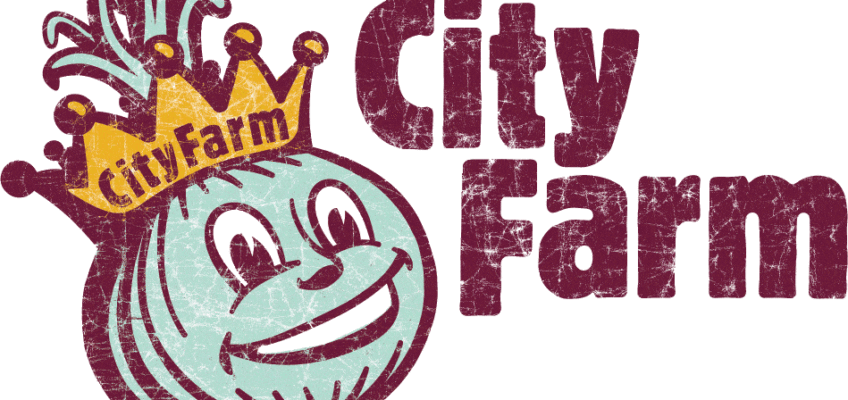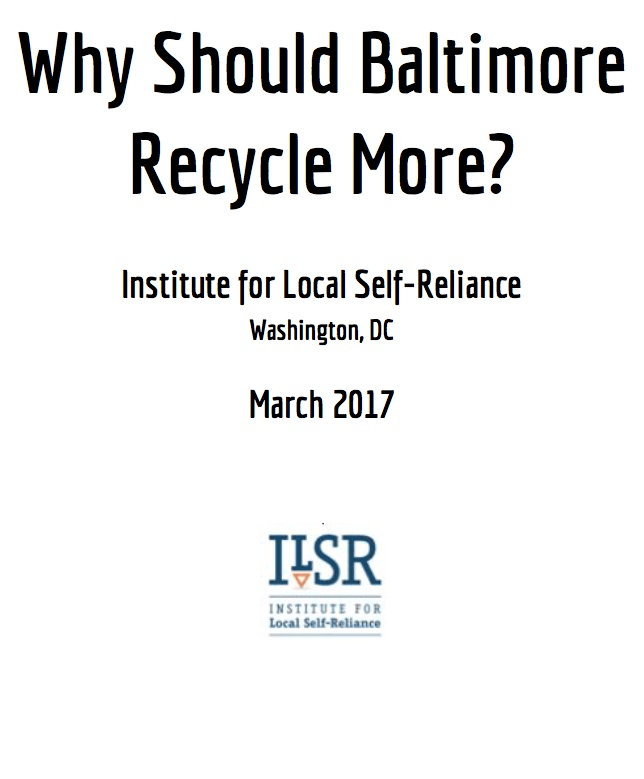Overview
One organization in Chicago has figured out how to extract value from resources that the economy deems useless. The Resource Center works by coupling valuable resources that would otherwise become trash with valuable workers who would otherwise be unemployed. Their work ultimately minimizes the waste the city produces and creates good jobs that enhance the quality of life for citizens of Chicago. They do this through five initiatives: residential recycling pick up service, food-to-farm compost collection service, urban farming, perishable food recovery, and a creative reuse warehouse.
Ken Dunn founded the organization as a recycling operation over 40 years ago. He saw an opportunity to improve the community by appreciating available resources that were being overlooked. In an interview with ILSR, Dunn stated that by respecting all of our resources, including waste, “a higher quality of life can be available to every member of society.” This idea is at the heart of all the Resource Center’s work.
The Resource Center is a social enterprise, meaning profit generated in any of the programs is used to further the nonprofits education and sustainability mission. Having five diverse initiatives is beneficial for securing funding because when one initiative is temporarily unsuccessful, another can cover for it.
Recycling
The Resource Center began as a recycling operation and it continues to be a major initiative; of the Resource Center’s 27 workers 20 work in recycling. The Resource Center collects recyclable materials from commercial businesses and residential homes. They are able to recycle a whopping 99% of the materials they pick up. According to Dunn, they are able to do this by “insisting on integrity at every stage.” The Resource Center only works with organizations that are serious about separating their recyclables correctly. By requiring good source separation, the Resource Center has incredible success recycling what they pick up.
Compost
The food-to-farm compost collection service allows organizations in Chicago that are committed to sustainability to have their food waste collected and turned into compost. Organizations involved in this program include universities, restaurants, and food service providers. In order to get households involved in composting as well, Resource Center offers a Table-to-Farm composting service through a Chicago farmers market. The Resource Center uses the compost it creates in its urban farming initiative.
Urban Farming
City farm is Resource Center’s urban farming initiative. In total, The Resource Center has three urban farming plots. The original soil in these plots was not great for growing produce but the Resource Center made up for this by covering their plots in two feet of rich compost. The plots grow fresh produce that the Resource Center sells to chefs in Chicago who are willing to pay for high quality, locally grown, produce. Urban farming plots also serve as education centers and hubs for community life. Hundreds of people volunteer at the plots and learn about farming. The experience people get working at the plots is invaluable. Dunn believes that our society is lacking a connection with the earth, by working on a farm people learn patience and a peaceful nature: “in farming, you don’t get far with anger or aggression.”
Perishable Food Recovery
The perishable food recovery service works with grocery stores, restaurants, and food providers in Chicago to ensure that unwanted edible food is redirected to hungry people. The food may be unwanted because it is not bought on the last day it is good until, it was over ordered, or sometimes items are still edible but don’t meet the freshness or quality requirements of the food provider. The Resource Center picks up 2-3 tons of food every day and makes sure that it is used to feed hungry people at 27 soup kitchens and food banks in the area.
Creative Reuse Warehouse
The final program, the Creative Reuse Warehouse is perhaps the most unique. Through this program, the Resource Center locates and collects pieces that would otherwise become waste and resells them to people who would want to use them for art or education. Dunn says that they generally find out about pieces that are good for the reuse warehouse from workers at the dump. Increasing public awareness of the reuse warehouse allows Resource Center to salvage more pieces.
Expanding The Resource Center
All of the Resource Center’s programs are ready to operate city wide. Opposition from the city and those in favor of landfill use has kept the Resource Center from taking their recycling and composting programs city wide. However, if the opportunity presents itself, we can expect to see the Resource Center expand its programs within Chicago.
Dunn believes that other organizations similar to the Resource Center could be created in cities across the country. He stresses that these organizations need to be built at the local level. The Resource Center works by finding undervalued resources that are abundant in Chicago: plots of land, unemployed people, and waste. Other cities may have different resources that are being overlooked and their version of the Resource Center should be created by pulling them together into a comprehensive program. It takes some creativity, but the outcome is a stronger, healthier community.
Click here to visit the Resource Center’s website.
Follow the Institute for Local Self-Reliance on Twitter and Facebook and, for monthly updates on our work, sign-up for our ILSR general newsletter.





